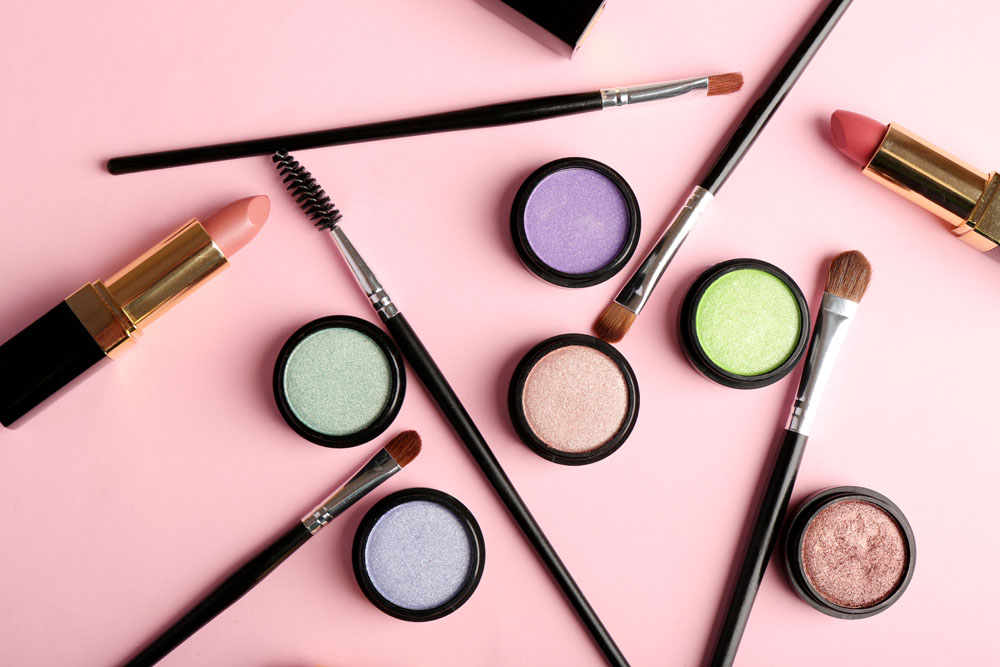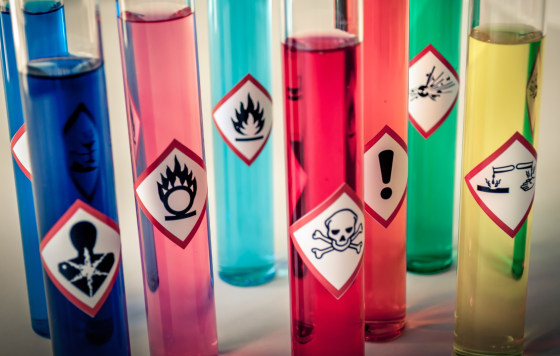
Personal Care Products – What’s going on your body, and down the drain?
At Christmas, I gave my daughter a set of non-toxic beauty products and decided that it was about time I looked through my own personal care items. We all have favorites – whether it’s a certain face cream or a special fragrance - and it’s just not that easy to give them up!
I confess that I had held onto a favorite face scrub that contained microbeads, vowing to replace it with a safer alternative when it was empty. But the sudden passage of the national microbead ban, close on the heels of a similar ban here in CT, inspired me – I was going to toss it in the trash, not down the drain, along with any other products that contained silica or microbeads among their ingredients.
But when I perused the shelves of my bathroom closet, I found many old bottles hiding behind those I use every day. This led to a major clean out project (which is almost finished now). I discovered several old tubes of toothpaste proudly claiming microbeads, more recent ones that didn’t come right out and shout it, as well as face wash and soaps with those telltale flecks of plastic inside.
I expanded my search to other chemicals known to be of concern to health, scanning ingredients for triclosan, parabens and the ubiquitous ‘fragrance’. Triclosan is an antibacterial ingredient found in hand soap and sanitizer, and many other products, including toothpaste. It is a potent hormone disruptor, persists in the environment and is toxic to aquatic life.
The Food and Drug Administration has found it to be no more effective than soap and water. Parabens, used as a preservative in many personal care products and in some foods, mimics estrogen and has been linked to breast cancer in low levels of exposure.
Out, out, out they went!!!
Even my children’s long outgrown bath toys, soft and squishy with hormone-disrupting phthalates, hit the trash – making me angry to know that my two children were raised on these everyday items, and so many more, before we knew the potential risks to health – obesity, reproductive disorders like infertility, even cancer. But now that we do know, there is no excuse to avoid cleaning out that closet!
Getting rid of toxic personal care products is one of the things you can most easily do to de-tox your home. Why? Because the ingredients must be listed on the product (with the exception of ‘fragrance’ which is considered a trade secret and may contain up to 200 ingredients). So you can read the label and see what you are putting on your body.
Of course, you do have to learn some chemistry! There are databases and apps like the Environmental Working Group’s Skin Deep and Think Dirty that you can use to educate yourself and check out products you use, or consult while you are shopping. But why do we have to do all this? Why isn’t our government assessing the science and regulating chemicals of concern, as most Americans assume they are. Isn’t that what government is for? I wonder why it seems to be up to us to call for safer regulations on chemicals now known to be linked to serious health problems.
Consumers are demanding change! In 2014, Avon pledged to remove triclosan from its products in response to consumer demand . Johnson & Johnson and Proctor & Gamble have followed suit. Revlon has announced that they would remove some long-chain parabens and formaldehyde-releasing chemicals from their products.
Clean Water Action, working with the Mind the Store campaign has been very successful in its efforts to push retailers to remove toxic products from their shelves. Walmart, Target, Walgreens, and others major chains have all taken steps to remove some toxic products from their shelves, or have pledged to do so soon. This is having the desired effect of making manufacturers use safer alternatives if they want to continue to do business with those major chains.
Many states, including Connecticut, are working to pass laws requiring stricter scrutiny and control of what is in our everyday products, and in us. Some, like Washington and Maine, have instituted reporting requirements which give all of us valuable data. Others have banned individual chemicals of concern, as Minnesota did with its first I the nation ban on triclosan.
Now there is a national bill wending its way through the US Congress that would strengthen and update existing laws regulating personal care products and there is hope that help is on the way. The Personal Care Products Safety Act, introduced by Sens. Dianne Feinstein, D-Calif., and Susan Collins, R-Maine, would be a more comprehensive solution than individual bans like the microbeads ban. The bill would help the federal Food and Drug Administration ensure that cosmetics and other personal care products are safer and give the FDA the ability to stop companies from selling unsafe products and to recall any products it finds to be dangerous, something the agency cannot currently do.
What can you do? Speak up! Contact your legislators and let them know that this is an important issue for you and that you want stronger laws to protect our families, and especially our most vulnerable, developing children, from exposure to toxic chemicals in our personal care products.
And for heaven’s sake, clean out that closet!


